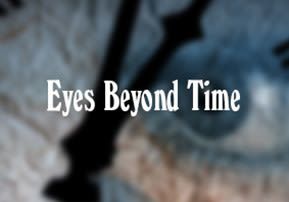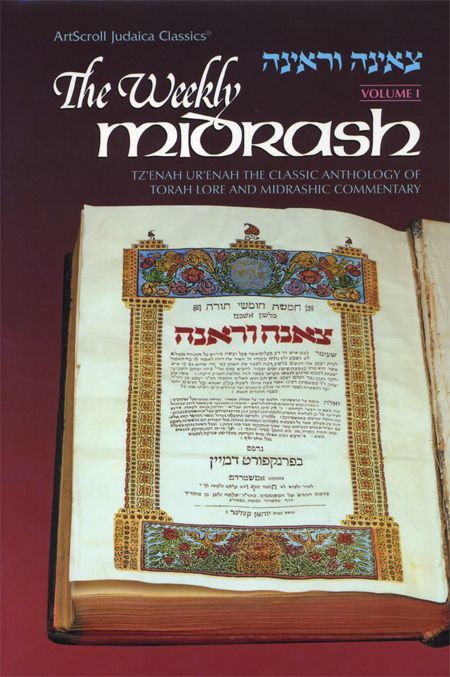
Eyes Beyond Time
Spiritual sight and material sight conflict with one another; the more a person regards the world with a material orientation, the less he enjoys spiritual insight...

King David pleaded with Hashem and begged, "Unveil my eyes so that I may see the wonders of Your Torah."[1]King David didn't walk around with a veil on his face or with dark sunglasses, so what was the optical obstruction he was referring to?
As Hashem's anointed, King David knew that spiritual sight and material sight conflict with one another. In other words, the more a person regards the world with a material orientation, the less he enjoys spiritual insight. Conversely, the more a person realizes the folly and futility of material endeavors, the more he seeks spirituality and gains spiritual insight. Spiritual insight enables a person to see things that others don't see at all. How? Imagine that you're standing on the top of a mountain; your field of vision is much further and wider than a person who is standing on a lower ledge or at the bottom of the mountain. By the same token, the higher a person's spiritual level, the more he or she sees. We can now understand how the average man can not at all understand the decisions and considerations of our spiritual leaders; he cannot see what they see. In the case of King David, he was asking Hashem to help him guard his eyes, for he knew that the less he looked at the  material realm, the greater his insight and understanding of the Torah's wisdom would be.
material realm, the greater his insight and understanding of the Torah's wisdom would be.
The spiritual insight that King David sought and attained enabled him to see far beyond the limitations of time and space.
The Gemara[2]relates a classic example of the far-reaching spiritual insight of our spiritual leaders.
Some forty years before the destruction of the Second Holy Temple, there were numerous signs that it would be destroyed in the not-too-distant future. Rebbe Tzadok began a forty-year fast, begging Hashem to overturn this utterly harsh decree. Ultimately, the Roman General Vespasian set siege to Jerusalem, and despite three years of choking the city, he couldn't capture it.
Rebbe Yochanan ben Zakai was the spiritual leader of the generation. He believed that military conflict with the Romans was futile, for the Holy Temple had been marked for destruction. His goal was to salvage the Torah and save the Torah scholars. The only chance to do so was to make peace with the Romans. Yet, the ruffian zealots, known as the Biryonim, were haughty enough to think that they could resist the Roman army rather than surrender. Even though Jerusalem still had a 25-year supply of oil, flour and wood and could withstand a prolonged enemy siege, the Biryonim deliberately set fire to these reserves so that the people would be forced to fight the Romans.
Rebbe Yochanan ben Zakai summoned his nephew, Abba Sikra, who was the leader of the Biryonim, also known as the Sikrikim, or followers of Abba Sikra. He pleaded with his nephew not to wage a suicidal war with the Romans and to make peace with them. But, his nephew could do nothing for he lost control of the radical fringes. If he submitted to Rome, they'd kill him on the spot. Rebbe Yochanan saw that his only hope would be to try and escape from the city, so he asked for his nephew's help in getting past the zealot sentries, who would not let anyone leave the city. Rebbe Yochanan had to find a way to leave Jerusalem so that he could meet with the Roman General Vespasian.
Abba Sikra advised his uncle to feint a grave illness and to enable only his trusted inner circle of students to enter his room. Several days later, word got out that Rebbe Yochanan ben Zakai died. To maintain the city's ritual purity, the dead were taken out of the city and buried outside. The plan worked perfectly. Although the zealot sentries tried to interfere, the coffin was successfully taken out of the city. Rebbe Yochanan ben Zakai went directly to Vespasian and was granted entry. Upon entering into the general's presence, he bowed graciously and proclaimed "Peace upon you, Your Majesty!" Greetings, Your Majesty!
Rebbe Yochanan ben Zakai greeted Vespasian as a king even though the latter had not yet ascended to the throne. Vespasian growled that Rav Yochanan was liable to the death penalty for calling him king when he was merely a general. Yet, by virtue of his farsighted spiritual vision, Rebbe Yochanan knew that he was standing in front of a king. Sure enough, moments later, a courier from Rome arrived and informed the general that the Roman Senate has hereby crowned him as Caesar, the king. Such is the spiritual vision of our great leaders, who guard their eyes from seeing anything that they should not see.
A Lubavitcher story tells about Rebbe Shneur Zalman of Ladi, the "Baal HaTanya" of saintly and blessed memory. His opponents fabricated lies that he was revolting against the Czar, so he was imprisoned. On numerous occasions, he was subject to grueling interrogations. One day, the Czar himself to disguise himself and interrogate the rabbi to see for himself if the charges against him were true or false. Despite the Czar's costume of a regular officer's uniform, the Baal HaTanya greeted him as one greets an honored king.
“I am not the Czar, so why are you giving me this honor?”
“But of course your majesty is the Czar,” the Baal HaTanya replied in deep respect. “Earthly kingship resembles the Heavenly dominion. Just as the Heavenly beings are filled with fear and awe, I was filled with awe the moment your majesty entered the cell. Although I was interrogated by other officers wearing the same type of uniform, I never felt such extreme fear invoked by any mortal before!” The Baal HaTanya was released soon thereafter.
Guarding our eyes is not just a matter of prudishness, as many would have us believe. It is a prerequisite for Torah, holiness and getting close to Hashem. The closer we get to Hashem, the more our lives become meaningful and the more we desire to get even closer, in a beautiful upward spiral that takes us higher and higher. We too can see far beyond time and space, if we only desire to.












Tell us what you think!
Thank you for your comment!
It will be published after approval by the Editor.